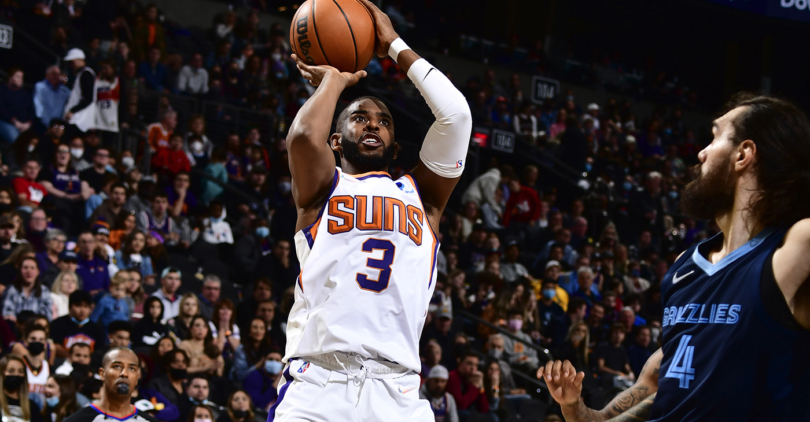By Stacy M. Brown, NNPA Newswire Senior National Correspondent
@StacyBrownMedia
When the NBA and NBA Foundation announced new programs earlier this year designed to create more opportunities for under-graduate and graduate students from historically Black colleges and universities (HBCUs), it only underscored the value placed on those institutions by the league, its owners, and players.
The announcement also helped set the stage for the November 2021 inaugural Boost Mobile HBCU Challenge at Footprint Center in Phoenix, home of the Phoenix Suns NBA Team.
The vision of Suns’ superstar point guard Chris Paul, the tournament featured Hampton, Norfolk State, Morgan State, and Grambling State. The schools faced off in a round-robin format that ESPN2 and ESPNU carried live on national television.
Paul said the goal was to increase the visibility of HBCUs by hosting them in an NBA arena on national TV.
“I [was] so excited for the chance to give these players the opportunity to experience something not usually available to HBCU student-athletes and compete on a national stage,” Paul said in a statement.
“My time in college is something I’ll never forget, and I hope these events give these players something they’ll remember for the rest of their lives. I sincerely appreciate the collaboration of the Basketball Hall of Fame and the Phoenix Suns to bring this to life, and I can’t thank the team over at Boost Mobile enough for their support of this event.”
It’s not lost on Paul and Phoenix Suns owner Robert Sarver that HBCU basketball doesn’t receive the fanfare and national media attention accorded other mainstream NCAA institutions.
From conference playoffs and the annual March Madness to the NCAA Championship game, much of the nation –if not the globe – focuses on college basketball.
Despite the same level of play and intensity, games involving HBCUs are, by comparison, mostly devoid of such a media spotlight.
“For me, it’s just about giving a voice to the voiceless,” Paul stated on the ESPN show, First Take.
Paul routinely has led by example.
As union president, the point guard helped negotiate an agreement between the league and the Players Association to allow NBA athletes to suit up wearing various social justice phrases on their uniforms.
Players like Paul, LeBron James, and Carmelo Anthony wore jerseys with messages like “Say Her Name,” “I Can’t Breathe,” and “Speak Up.”
As 2021 ended, the Suns and the NBA have cemented their legacy among professional sports leagues as pioneers and activists for social justice change.
They’ve also firmed up their commitment to HBCUs sports scholarships and other strategies to increase the visibility of the accomplishments of HBCUs athletes.
Suns coach Monty Williams learned the nuances of basketball from Taft Hickman, who spent nearly a half-century coaching at high schools in the Washington, D.C., area and Bowie State University, an HBCU located in Maryland.
Williams also has noted the commitment Sarver and the Suns organization has made to provide the best training facilities, support staff, and talent to help the team succeed on and off the court.
“While I have striven to understand and relate to what our Black players are feeling and experiencing today, I sympathize with them, listen to them, and support them,” Sarver affirmed in a previously released statement.

